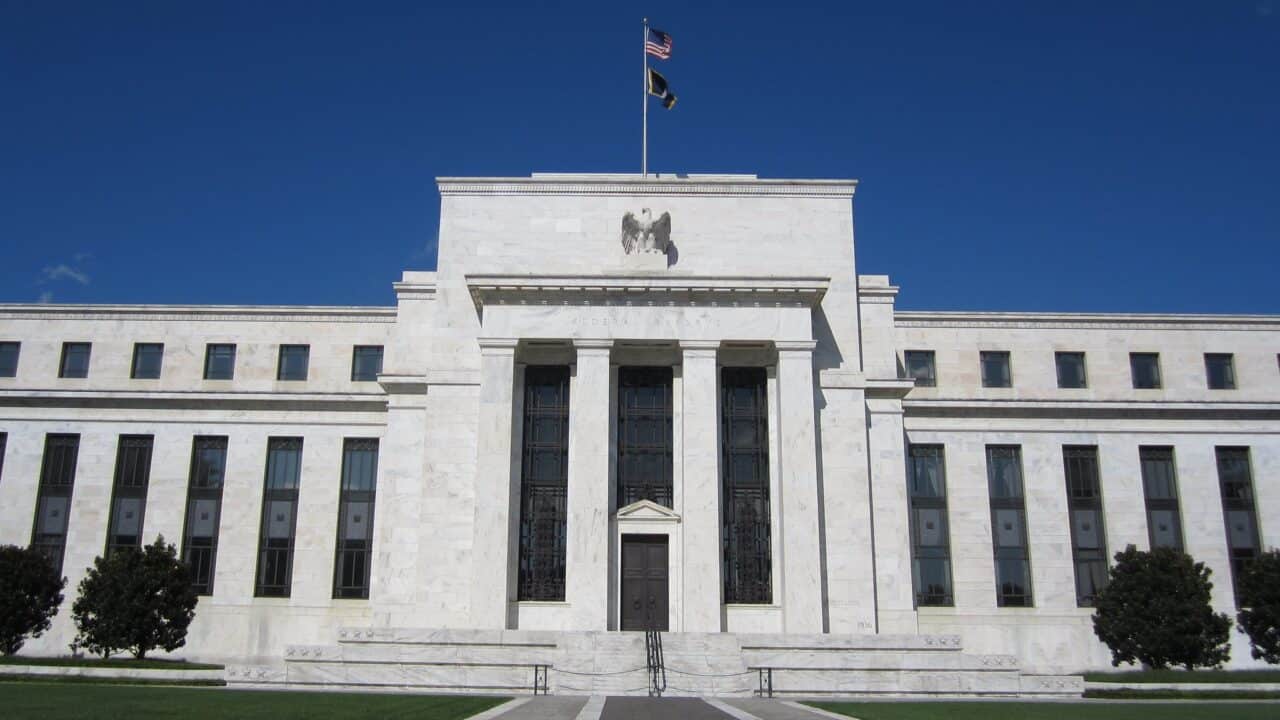 "The Federal Reserve" by futureatlas.com is licensed under CC BY 2.0
https://www.futureatlas.com/
"The Federal Reserve" by futureatlas.com is licensed under CC BY 2.0
https://www.futureatlas.com/
This past week, Americans for Tax Reform submitted a comment letter responding to three proposed rulemakings affecting the volume of shareholder equity and retained earnings that banks must maintain. These government-mandated capital requirements circumvent congressional intent and dismiss the notice and comment process outlined in the Administrative Procedure Act. You can read a copy of ATR’s comment letter by clicking here.
A summary of ATR’s comments can be found below:
The Federal Reserve (Fed), Federal Deposit Insurance Corporation (FDIC), and Office of the Comptroller of the Currency (OCC) are proposing to heighten regulation on banks with at least $100 billion in consolidated assets. The origins of these regulations stem from the Basel Committee on Banking Supervision (BCBS)—a consortium of central banks from around the world, including the Federal Reserve. The Proposal would force large banks to build up more capital through retained earnings and additional stock issuances without any input from Congress.
These new rules will make borrowing more expensive, hamper dividends and share repurchases,[1] and reduce the availability of credit cards and mortgage loans.
The BCBS’s influence in bank regulation across the globe has created a regulatory structure that circumvents Congress. This is evidenced by the Proposal’s direct repudiation of the bipartisan Economic Growth, Regulatory Relief, and Consumer Protection Act (P.L. 115-174).[2] The Proposal eliminates and replaces the tailored regulation from P.L. 115-174 by applying uniform regulations to all banks with more than $100 billion in assets. For example, the Proposal expands inclusion of accumulated other comprehensive income (AOCI) for available-for-sale (AFS) securities to capital calculations for Category III and IV banks. Category III and IV banks would also be required to calculate their capital based on both the new expanded risk-based approach and the existing standardized approach, “and then measure compliance based on the more stringent of the two ratios.”[3] The supplementary leverage ratio (SLR) and the countercyclical capital buffer (CCyB) would also be expanded to apply to Category IV banks. The blanket application of these requirements defeats the purpose of P.L. 115-174. Congress did not intend for all banks with more than $100 billion in assets to be subjected to the same rules uniformly. The application of these new rules is a direct rejection of congressional intent. According to the FDIC Vice Chairman, the proposal is a “repudiation of the intent and spirit of” P.L.115-174.[4]
This Proposal is arbitrary and capricious, an abuse of discretion, and exceeds the statutory bounds with which the regulators are supposed to operate.[5] Regulators may not expand their authority merely because they believe their “preferred approach would be better policy.”[6] The regulators claim to have broad statutory authority to amend capital requirements at will. However, Congress “does not alter the fundamental details of a regulatory scheme in vague terms or ancillary provisions—it does not, one might say, hide elephants in mouseholes.”[7] Congress made it clear in P.L. 115-174 that there needs to be a regulatory structure that is best tailored to banks with different operations and structures. The Proposal dismisses Congress’s intent and moves ahead anyway.
The Proposal’s insistence on applying uniform rules to all banks with more than $100 billion in assets contravenes P.L. 115-174 and is inconsistent with previous rules. Other rules have been vacated because the agency “failed adequately to justify departing from its own prior interpretation.”[8]
Regulators are justifying the uniform application of capital regulations to banks in Category I, II, III, and IV by referring to “recent events” or the collapses of Silicon Valley Bank (SVB), Signature Bank (Signature), and First Republic Bank (FRB).[9] However, these bank failures cannot and should not be attributed to all U.S. banks with more than $100 billion in assets.
The capital requirements dictated by the regulators have not been condoned by Congress and are arbitrary and capricious under the Administrative Procedure Act (APA).
The U.S. government is implementing regulations for U.S. banks that are based on a framework designed by a coalition of global regulators. It is concerning that U.S. regulators are taking international guidelines and imposing them on banks and ultimately the American public. Consumers will have to pay higher costs that are passed down through more expensive borrowing or banking services more generally. The executive branch hijacked the rulemaking process by circumventing Congress. The executive branch enforces the law, it does not create it. In this case, the Biden Administration is ignoring checks and balances to notch a win.
The Proposal is a classic example of the government intervening in the operations of private companies by mandating how they must organize their balance sheets. If finalized, the Proposal has the potential to reduce the availability, or increase the cost of credit for auto loans, credit cards, and mortgages. One paper describes how the regulators’ unbridled quest for more stringent capital requirements can make capital allocation more expensive. According to the paper, “[a]ll else equal, making regulated banks less risky may actually raise their cost of capital—with consequent implications for investment, growth, and the development of a shadow banking sector.”[10]
[1] https://www.wsj.com/articles/banks-stock-buybacks-basel-endgame-50fb9e7c.
[2] https://www.congress.gov/bill/115th-congress/senate-bill/2155.
[3] https://clsbluesky.law.columbia.edu/2023/08/01/cleary-gottlieb-discusses-proposed-capital-requirement-increases-for-banks/.
[4] https://www.fdic.gov/news/speeches/2023/spjul2723b.html.
[5] https://www.justice.gov/sites/default/files/jmd/legacy/2014/05/01/act-pl79-404.pdf.
[6] Virginia Dep’t of Med. Assistance Servs. v. United States Dep’t of Health & Human Servs., 678 F.3d 918, 400 U.S. App. D.C. 319 (D.C. Cir. 2012).
[7] Whitman v. American Trucking Associations, Inc., 531 U.S. 457 (2001).
[8] Goldstein v. S.E.C, 451 F.3d 873 (D.C. Cir. 2006).
[9] 88 FR 64032
[10] https://www.hbs.edu/ris/Publication%20Files/Wurgler_Paper_78db6340-ae41-4630-8e25-d990b547171b.pdf.

